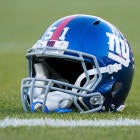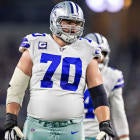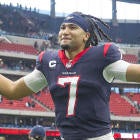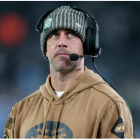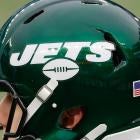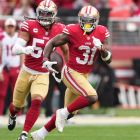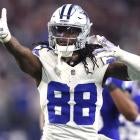The NFL and NFLPA released a joint statement Monday that they have banned 10 helmet models from being used in the future. Six of the 10 helmet models are banned immediately, while four are only permitted to be worn by the players that wore them in 2017.
Joint statement regarding the 2018 helmet laboratory testing performance results: https://t.co/u46bJLRYDd pic.twitter.com/PTv4FWSyc8
— NFLPA (@NFLPA) April 16, 2018
The results of the laboratory testing, which tested 34 helmet models, revealed "which helmets best reduced head impact severity under laboratory conditions simulating concussion-causing impacts sustained by NFL players during games." According to the joint release, 98 percent of players wear helmets that were involved in the test.
The study continues to measure rotational velocity and acceleration as part of a combined metric to evaluate helmets. The NFL/NFLPA evaluation is the first of its kind to adopt rotational measures in its analysis.
The tests were conducted by an independent helmet testing laboratory, Biokinetics Inc. of Ottawa, Canada. The study formulation, experimental design and data analysis were performed by biomechanical engineering consultants selected and appointed by the NFL and NFLPA. An independent biostatistician, Dr. Timothy McMurry, Assistant Professor of Biomechanics at University of Virginia, Department of Public Health Sciences, was retained to assist in the analysis of the data. The results were then presented to the NFL Chief Medical Officer, Dr. Allen Sills, and to the NFLPA and its Medical Director, Dr. Thom Mayer.
The results of the study can be found in the diagram below:
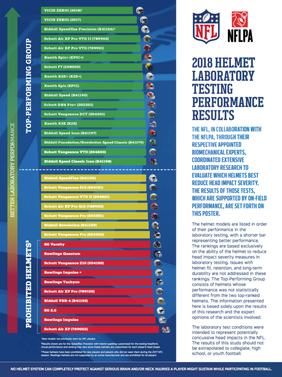
The banned helmets include the SG Varsity, Rawlings Quantum, Schutt Vengeance Z10 (204100), Rawlings Impulse, Rawlings Tachyon, Schutt Air XP Pro (789102), Riddell VSR-4 (R41133), SG 2.0, Rawlings Impulse, and Scutt Air XP (789002).









